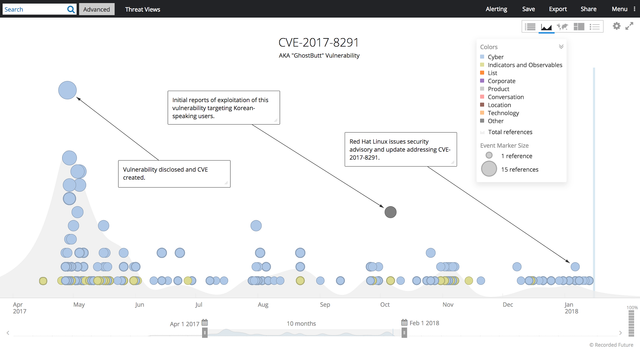New Report: North Korean Hackers Stole Funds From South Korean Cryptocurrency Exchanges
US cybersecurity firm Recorded Future has discharged another report connecting Lazarus, a North Korean hacking gathering, to different South Korean digital currency trade hacking assaults and security ruptures.
In a report entitled "North Korea Targeted South Korean Cryptocurrency Users and Exchange in Late 2017 Campaign," the company's specialists expressed that a similar kind of malware utilized as a part of the Sony Pictures security rupture and WannaCry ransomware assault was used to target Coinlink, a South Korea-based digital money trade.
"North Korean government performing artists, particularly Lazarus Group, kept on focusing on South Korean digital currency trades and clients in late 2017, preceding Kim Jong Un's New Year's discourse and ensuing North-South exchange. The malware utilized imparted code to Destover malware, which was utilized against Sony Pictures Entertainment in 2014 and the primary WannaCry casualty in February 2017," the report read.
$7 mln stolen from Bithumb
In February 2017, Bithumb, the second biggest cryptographic money trade in the worldwide market by day by day exchanging volume, succumbed to a security rupture that prompted the loss of around $7 mln of client stores, for the most part in Bitcoin and Ethereum's local digital currency Ether.
The report discharged by Recorded Future noticed that the $7 mln Bithumb security break has been connected to North Korean programmers. Insikt Group specialists, a gathering of cybersecurity analysts that nearly track the exercises of North Korean programmers consistently, uncovered that Lazarus Group, specifically, has utilized an extensive variety of devices from skewer phishing assaults to malware circulation through correspondence stages to access cryptographic money wallets and records.
Insikt Group scientists uncovered that Lazarus Group programmers started a gigantic malware battle in the fall of 2017 and from that point forward, North Korean programmers have concentrated on spreading malware by joining records containing false programming to access singular gadgets.
One strategy Lazarus Group utilized was the circulation of Hangul Word Processor (HWP) records through email, the South Korea likeness Microsoft Word reports, with malware joined. On the off chance that any cryptographic money client downloads the malware, it independently introduces itself and works out of sight, taking control of or controlling information put away inside the particular gadget.

"By 2017, North Korean performers had hopped on the digital money temporary fad. The principal known North Korean cryptographic money operation happened in February 2017, with the burglary of $7 mln (at the time) in digital money from South Korean trade Bithumb. Before the finish of 2017, a few scientists had detailed extra lance phishing efforts against South Korean digital currency trades, various effective burglaries, and even Bitcoin and Monero mining," Insikt Group analysts composed.
Inspiration of North Korean programmers
Preceding the arrival of Recorded Future's report, a few other cybersecurity firms had blamed North Korean hacking bunches for focusing on South Korean digital currency exchanging stages with refined malware and phishing assault devices.
Specialists at FireEye connected six focused on digital assaults against South Korean cryptographic money trades to state-financed programmers situated in North Korea. Most as of late, as Cointelegraph announced, police agents and the Korea Internet and Security Agency started a full examination concerning a security rupture that prompted the chapter 11 of YouBit, a South Korean digital currency exchanging stage.
At the time, nearby examiners expressed that they have discovered confirmation to interface the YouBit security rupture to North Korean programmers. FireEye senior expert Luke McNamara additionally disclosed to Bloomberg that comparative devices generally used by North Korean programmers were utilized in the YouBit hacking assault.
"This a foe that we have been viewing turned out to be progressively proficient and furthermore audacious as far as the objectives that they will follow. This is extremely only one prong in a bigger procedure that they appear to utilize since no less than 2016, where they have been utilizing ability that has been principally utilized for undercover work to really take reserves."
